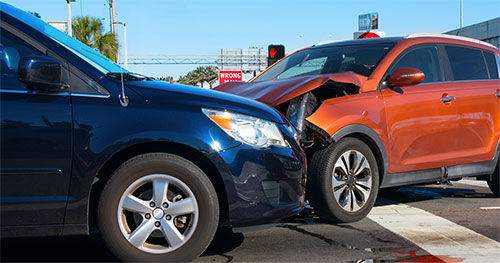
-
File a claim with the other driver’s insurance
At the accident scene, take a picture of the other driver’s insurance card and driver's license. If they don’t have an insurance card, ask for their name, phone number, insurance company name, and policy number. Give the other driver your information.
When you get home, file a claim with the other driver’s car insurance. Let your insurance company know. If police responded to the accident, get a copy of the report. Send it to the other insurance company.
If the other driver didn’t have insurance or drove away without stopping, skip to step 3.
-
Issues that can happen when filing a claim
The other driver’s insurance should pay for your car repairs, medical bills, and a rental car. Still, there’s no guarantee they will pay. The other driver’s insurance company might:
- Say their driver wasn’t at fault and refuse to pay you.
- Say both drivers were at fault and want you to pay some of your costs.
- Say their driver doesn’t have enough insurance to pay all your costs.
- Not return your calls or emails.
- Take a while to contact you while they wait on their policyholder to respond to their email or call. Their policyholder might never respond.
Finding yourself in one of these situations is tricky. You don’t have a contract with the other driver’s insurance, so you don’t have the same options you would with your own company.
If the other insurance says they won’t pay you, ask for their reason in detail and in writing.
-
Use your insurance
Your next option is to file a claim with your own car insurance.
If you have collision coverage, it will pay your repair costs.
If you have uninsured/underinsured motorist coverage, it will pay if the at-fault driver didn’t have insurance or enough insurance to pay your car repairs. It also pays for hit and run accidents if the other driver drove away and you didn’t get their insurance information.
If you have medical bills, your personal injury protection coverage, medical payments coverage, or uninsured/underinsured motorist coverage might pay.
Your insurance company will try to recover what they paid you from the other driver’s insurance. If they get anything back, you might get your deductible reimbursed.
-
Get help
TDI can help with complaints against insurance companies. If you file a complaint about another driver’s insurance company, the company must write back to you explaining why they’re denying a claim or paying a certain way.
If the insurance company won’t pay for your damage or medical bills, your next option is to get legal help.
Resources:
